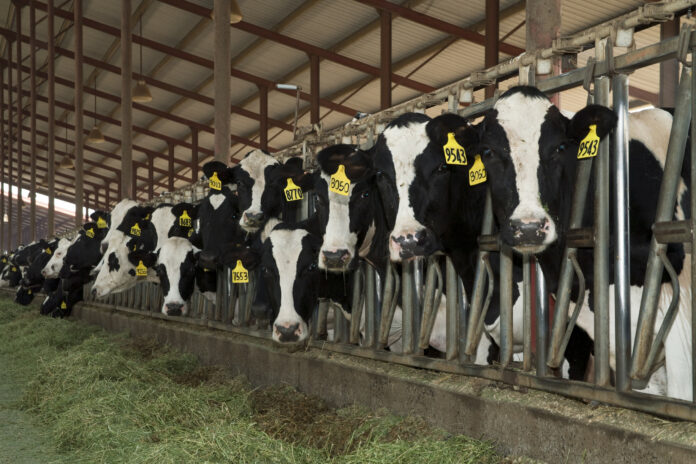Traces of the bird flu virus were found in some samples of pasteurized milk in the U.S. on Tuesday, according to the Food and Drug Administration (FDA), as the agency advises that the milk is safe to drink until further testing is performed.
According to the Centers for Disease Control and Prevention (CDC), avian influenza or bird flu is a disease “caused by infection with avian influenza Type A viruses.” These viruses can also naturally spread among wild aquatic birds worldwide and can infect domestic poultry and other bird and animal species.
On Tuesday, the FDA said traces of the virus were found while testing samples of pasteurized milk using a testing method called PCR testing, which looks for traces of genetic material. The testing samples found inactive remnants of the bird flu virus, killed during the pasteurization process.
However, the agency advised that a positive result does not mean that a live, infectious virus has been found.
Ed Young /Design Pics Editorial/Universal Images Group/Getty Images
“Based on available information, pasteurization is likely to inactivate the virus, however the process is not expected to remove the presence of viral particles. To date, we have seen nothing that would change our assessment that the commercial milk supply is safe,” the agency said in a statement.
Newsweek reached out to the FDA via email for comment on Tuesday night.
While the agency maintains that the milk is safe to drink, it said it is still waiting on the results of additional studies to confirm.
The FDA is undergoing the testing of egg and milk production to ensure that the supplies remain safe from the virus. According to the agency, results from multiple ongoing safety studies will be released in the “next few days to weeks.”
This comes weeks after a positive human case of the avian flu was identified at a Texas dairy farm.
According to the Texas Department of State Health Services (DSHS) this month, a human case of avian influenza virus in the state was identified in someone who had direct exposure to dairy cattle presumed to be infected.
“The patient, who experienced eye inflammation as their only symptom, is being treated with the antiviral drug oseltamivir,” DSHS said in a statement.
While it was only the second human case of H5N1 ever recorded in the country, there is no current evidence to suggest the virus is being spread among humans.
However, the case sparked concern regarding the milk supply among cows.
Rick Bright, former director of the Biomedical Advanced Research and Development Authority (BARDA), previously cautioned that avian flu could pose a serious threat, as he wrote in a 2023 Think Global Health column about the concern that it might become transmissible between humans.
“They would have to do a lot of testing before I would drink milk from one of these farms at this point,” Bright told Politico earlier this month.
The FDA previously said there is “no concern about the safety of the commercial milk supply” because of pasteurization, which heats milk to a temperature that would kill the virus. In addition to pasteurization killing viruses and bacteria, dairy farms are legally required to only supply milk from healthy animals.
The agency also said it recommends that milk producers take precautions when discarding milk from sick cows to prevent it from becoming a source of spread.
Uncommon Knowledge
Newsweek is committed to challenging conventional wisdom and finding connections in the search for common ground.
Newsweek is committed to challenging conventional wisdom and finding connections in the search for common ground.


